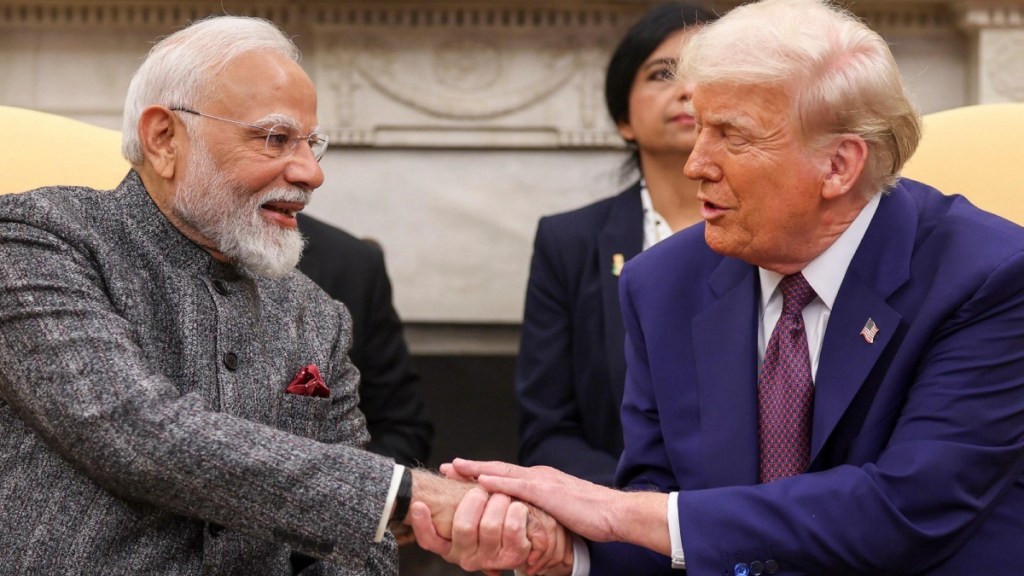US President Donald Trump has stated that his administration is paving the way to provide India with F-35 stealth fighters. In response, Pakistan on Friday expressed concerns, arguing that the move could disrupt the regional military balance, undermine strategic stability, and hinder efforts to achieve lasting peace in South Asia.
A displeased Pakistan urged international partners not to take a “one-sided view that deviates from ground realities.” During a weekly press briefing, a spokesperson for Pakistan’s Ministry of Foreign Affairs (MOFA) stated, “Pakistan is deeply concerned over the planned transfer of advanced military technologies to India. Such steps accentuate military imbalances in the region and undermines strategic stability.” He further added, “They remain unhelpful in achieving the objective of a durable peace in South Asia. We urge our international partners to take a holistic and objective view of issues of peace and security in South Asia and refrain from endorsing positions that are one sided and deviate from ground reality.”
Trump made the announcement during a joint press conference with Prime Minister Narendra Modi following their bilateral talks on Thursday. He said, “Starting this year, we will be increasing military sales to India by many billions of dollars. We are also paving the way to ultimately provide India with the F35, Stealth fighters.”
When asked if India had agreed to purchase the F-35s following Trump’s remarks, Foreign Secretary Vikram Misri clarified during a press briefing that the acquisition process had not yet begun. “On military sales to India, there is a process by which platforms are acquired. There is, in most cases, a request for proposals that is floated. There are responses to those. They are evaluated. I don’t think with regard to the acquisition of an advanced aviation platform by India, that process has started yet. So, this is currently something that’s at the stage of a proposal. But I don’t think the formal process in this regard has started yet,” he said.
India and the US have also unveiled a new defence cooperation initiative, the Autonomous Systems Industry Alliance (ASIA), aimed at strengthening industry partnerships and advancing the production of autonomous systems, particularly in the field of underwater domain awareness.
Additionally, discussions covered the expansion of military cooperation across air, land, sea, space, and cyberspace, with an emphasis on enhanced training, exercises, and operations incorporating cutting-edge technologies. Both leaders also highlighted the upcoming “Tiger Triumph” tri-service exercise in India, which is set to be larger in scale and complexity than previous editions.
As part of their commitment to supporting overseas military deployments, India and the US agreed to improve logistics, intelligence sharing, and force mobility in the Indo-Pacific. These developments fall under the “US-India COMPACT for the 21st Century” initiative launched by Modi and Trump to drive advancements in “Military Partnership, Accelerated Commerce and Technology” between the two nations.
Furthermore, Trump announced the extradition of Tahawwur Rana, accused in the 26/11 Mumbai terror attacks, to India. “I am pleased to announce that my administration has approved the extradition of one of the plotters (Tahawwur Rana) and one of the very evil people of the world, having to do with the horrific 2008 Mumbai terrorist attack to face justice in India. He is going back to India to face justice,” he stated.
Rana, a Pakistani-origin businessman, was convicted for his role in the attacks. His co-conspirators included David Headley, who had pleaded guilty and cooperated in the case against him.
(With inputs from ANI)

